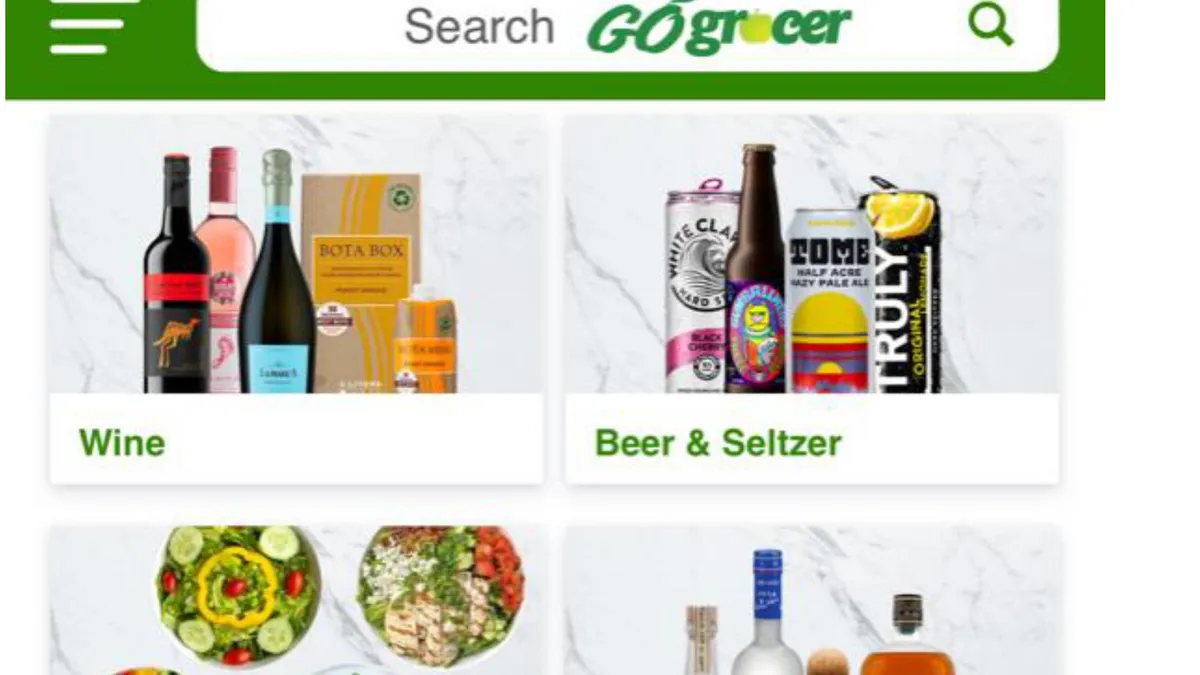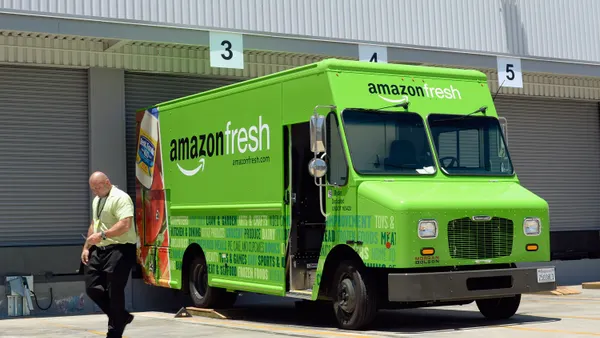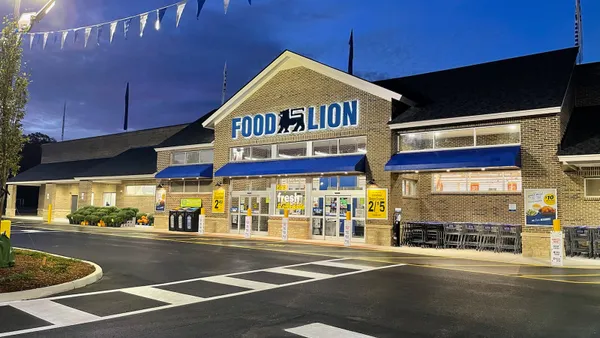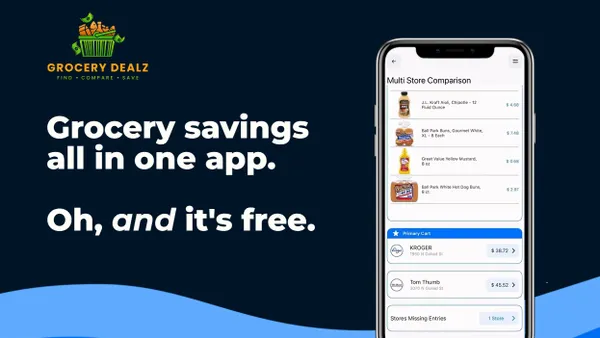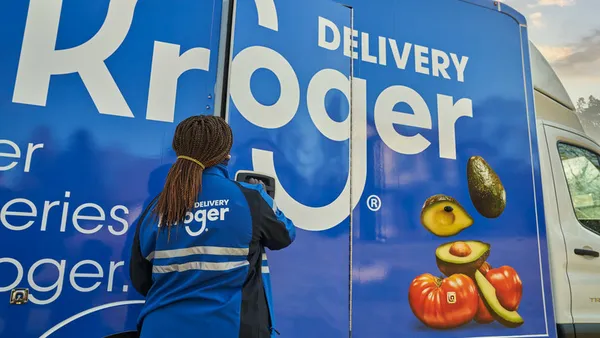Most firms offering delivery in 30 minutes or less are online startups speeding into the opportunity on a wave of investor funding.
But Go Grocer, a brick-and-mortar food retailer with 16 stores in downtown Chicago, is coming at the opportunity from a different angle. The self-funded company, which opened its first store in 2008, is launching its ultrafast delivery service Monday fueled by its new native app.
The strategy is a way of fighting fire with fire, said co-owner Paul Stellatos, as ultrafast startups like 1520 start moving in on their turf.
"We've gotten to this point where we've bumped heads with the ultrafast delivery companies," he said, noting that several of those firms have approached Go Grocer about acquiring the company. Asked which ones, he said, "All of them."
On Monday, Go Grocer is launching its app offering shoppers a full assortment of around 4,000 products from local stores, including prepared foods, snacks, personal care products and alcoholic beverages. The stores, which range in size from 3,000 to 7,000 square feet, and which Stellatos described as “7-Eleven meets Whole Foods,” can deliver to 95% of urban Chicago within seven minutes.
Store employees will pick the orders and then either make the delivery themselves or hand it off to a third-party courier. Some orders will travel by car, while others might arrive via bike, electric scooter or even by foot if the destination is close enough to the store. This “blended” approach, said co-owner Greg Stellatos, allows for flexibility, with the app’s software determining the best courier to handle the last mile.
Similar to its ultrafast delivery competitors that have launched around the globe, Go Grocer isn’t charging a delivery fee. However, it will have an order minimum of around $15, said Paul Stellatos. And unlike many online-only startups touting delivery in 15 minutes or less, the company isn’t advertising a specific time frame, even though the vast majority of orders will be delivered in less than 30 minutes.
“The cost to maintain that promise of 15 minutes does not outweigh the benefit of being able to deliver in 17 to 22 minutes, and do that profitably,” said Greg Stellatos.
Go Grocer developed its native app in partnership with local tech firm Clique over the past year, and has been testing the service over the past four weeks with around 50 friends and family members out of one location.
This is the retailer’s first venture into e-commerce, which makes it an outlier in an industry where companies scrambled to get online during the pandemic. But the Stellatos brothers said rushing into digital wasn’t a priority since their stores were deemed essential businesses, with many located on the ground floor of residential complexes. Paul Stellatos described 2020 as a "monster year" and said it provided the capital for the company to invest in its new delivery service.
The brothers also said they didn’t want to hand over customer service and data to a third-party firm, and wanted to take a “wait-and-see” approach.
"Yeah, there's platforms that we can get on, but we feel like we'd be selling ourselves short with what we have to offer, with what our technological know-how is in-house, and how we want to communicate our experience to the customer and also access data," Greg Stellatos said.
Challenging the ultrafast upstarts
Go Grocer’s new service comes as brick-and-mortar grocers are offering speedier delivery times in order to capitalize on rising digital demand for snacks, alcohol and other need-it-now items. Some, like Kroger and Ahold Delhaize, have launched instant-needs fulfillment from their stores in around 30 minutes via Instacart.
In major urban markets like Chicago, grocers and convenience stores are eyeing a potential battle with 15-minute upstarts like 1520, Gorillas, Jokr and the Turkish firm Getir. In the Windy City, only 1520 has so far announced a start to operations, but other firms are buying up real estate and planning to launch in the coming months, the Stellatos said.
They noted the firms that have approached Go Grocer about a possible acquisition are eager to gain market share, as well as the company’s centrally located store sites.
The brothers say they’re not interested in selling for now. But the talks highlight the perilous land grab these firms are engaged in inside urban markets. It also indicates these startups, which operate via a dark store model, could enter brick-and-mortar retailing as they expand to new markets. Gopuff, the leading instant-needs delivery firm, has been taking this approach in places like New York, California and Texas.
Alcohol is a major sticking point. In order to deliver alcohol in Chicago, retailers have to operate brick-and-mortar stores and fulfill various other requirements that amount to a “high barrier to entry,” Paul Stellatos said. On Monday, Go Grocer will be able to deliver the full range of alcoholic beverages it offers in stores, giving it a distinct advantage over dark-store-only enterprises that would be unable to offer those valuable beverages, he said, which help drive trips, boast high margins and can sit on shelves longer than many grocery products.
In addition, the Stellatos pointed to Go Grocer’s assortment of prepared foods — its top-selling category, made in a central commissary and delivered to stores daily — as well as its established brand as key advantages. The stores get upwards of 1.5 million visits per year collectively, they said.
Many 15-minute delivery startups don't charge delivery fees or require order minimums. The strategy is meant to be an irresistible draw for customers, but it also makes it difficult to make money when adding in rent and other costs. The Stellatos, who recently visited Europe to scout delivery competitors, said these firms incur significantly higher rent and labor costs in a city like Chicago than they do in many European markets.
"When the bulk of your expenses is just a couple hundred bucks a month, it's much easier to deploy money for employees and bikers to quickly get them out," Paul Stellatos said. "Fast forward coming to America. when you start going into the five boroughs of New York and your rent is seven, eight, nine, $10,000 a month, you really start scratching your head."
The ultrafast craze is already showing signs of strain, with Gorillas recently pausing U.S. expansion outside of New York City for the rest of this year. Meanwhile, a recent report from The Information detailed heavy losses among firms like Jokr.
To boost adoption of its app and speedy delivery service, Go Grocer will post QR codes in its stores that link shoppers to the app's download page when scanned. Managers have also trained employees to encourage customers at checkout to download the app. The Stellatos said they’re expecting orders to average between $50 and $60, fueled by booze and its mealtime assortment.
The brothers said that while they’re late to online grocery, they feel they have a unique strategy and proprietary technology that will resonate with shoppers. They plan to add two more stores in the coming months and eventually add frictionless checkout technology to a few locations.
Pretty soon, the Stellatos said, they'd like to expand Go Grocer to additional cities, whether through a partnership, acquisition or, as they’ve scaled up until now, on their own.
"Once our sales get on the app, I believe that's really going to help us expand with a partner, or just continue to bootstrap ourselves across the country," said Paul Stellatos.



